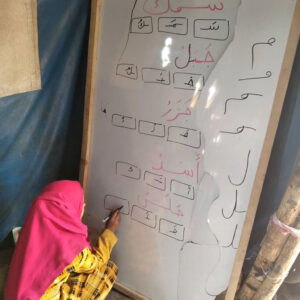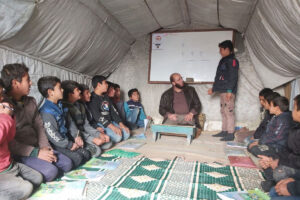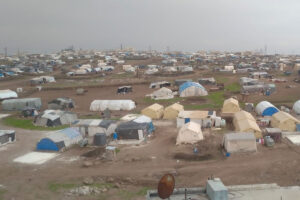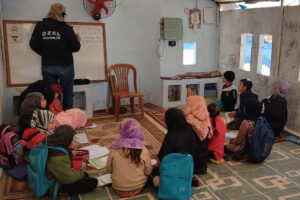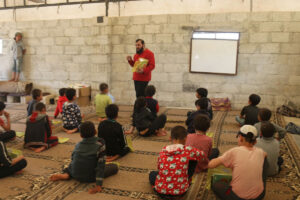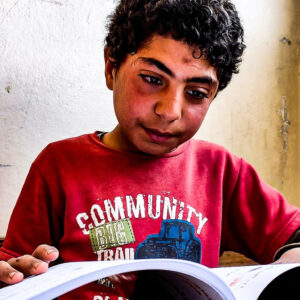
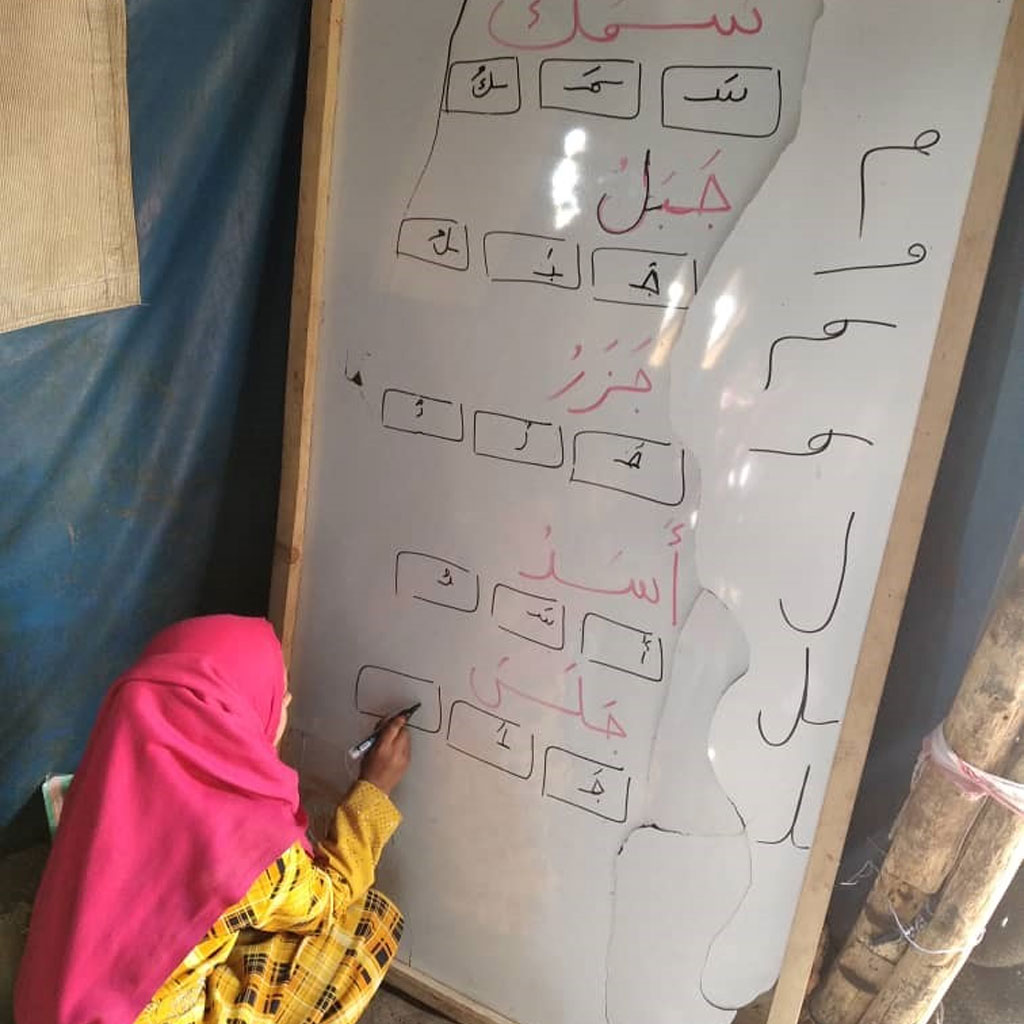
Suriye’deki Cehalet ve Onunla Mücadelede Yapılan Çabalar
After more than eleven years of the Syrian war, which led to widespread destruction of homes, infrastructure and basic services, Syrian society still facing its effects. More than 6.7 million people were forced to leave and most of them migrate to the north Syria region, where more than 1.9 million of them live in informal settlements, few of which are planned (HNO).
Education is among the issues that have been greatly affected, which has left an entire generation outside the educational process and deprived of its basic right to education. Illiteracy has spread widely, and according to United Nations statistics for the year 2021, there are more than 2.5 million children out of school. According to JENA, 44% of children in northwest Syria are out of the educational process.
The reasons leading children not attending or dropping out of school includes:
- Frequent displacement because of the ongoing war.
- The distance of schools from the areas of residence or the absence of them, as most of the displaced live in remoted camps.
- Schools are not safe because of being bombed previously.
- Children’s age has exceeded the age assigned for the grade.
- The small number of teachers because of the emigration of many of them and the lack of salaries.
Moreover, one of factors is that many children are forced to work to secure a livelihood due to the economic crisis. Child labor was widely spread within cities and camps, and the spread of Covid-19 also had a negative impact on education.
It is normal nowadays to find in Syria a 12-year-old child who does not know the letters, neither reading nor writing, as the illiteracy rate, according to official statistics, has reached more than 80% in the cities of northern Syria, and the percentage among children in the camps increases to 100%, especially among camps’ girls.
It was necessary to combine efforts and harness the available capabilities in order to advance the reality of education, Huda Charity took the initiative to put a footprint in this field through the project of literacy courses and the mobile educational tent project, which is being implemented in many areas in the north of Syria with a total of 172 classrooms accommodating 4,983 students under the supervision of 172 male and female teachers, where the basics of the Arabic language, arithmetic and some social manners are taught and virtuous values are implanted among the people of the Syrian society for its advancement. Education remains the hope for building a bright future for children of Syria.

